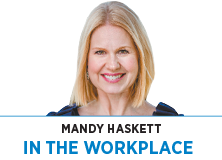Subscriber Benefit
As a subscriber you can listen to articles at work, in the car, or while you work out. Subscribe Now I’m just returning home from my annual solo retreat—a vacation I take each year all alone.
I’m just returning home from my annual solo retreat—a vacation I take each year all alone.
This tradition is a treasured time of reflection, rest, play and planning for me. I pack my notes from the past five years’ trips to get up onto the balcony of my life and observe its changes with some objectivity.
Humans vastly underestimate the ways in which we’ll change over the next 10 years. Harvard psychologist Dan Gilbert surveyed study participants on their preferences 10 years ago and asked another group to predict their preferences 10 years into the future.
Incredibly, Gilbert reports that humans are able to observe how much change has taken place in the past 10 years accurately, but we have trouble imagining that we’ll change any more than we have already. (The $5.23 billion tattoo-removal industry is betting on it).
While it’s true that change does slow throughout the course of our lives, “when” this happens is most commonly perceived as … now. I’ve just become the person I was always meant to be! This is an illusion.
Gilbert speculates that this phenomenon can be attributed to our ease of remembering and our difficulty imagining.
“Human beings are works in progress that mistakenly think they’re finished,” he says.
I write this today in “midlife,” a season with a terrible brand. Its primary word association since 1965? Crisis. When The New York Times released its “User Guide to Midlife” recently, the subhead read, “How to navigate its aches and pains, weight gain, perimenopause, low libido, memory loss, chronic diseases and stress.” Cheer up, things get worse!
But what if the transition we experience in midlife is less “crisis” (the etymology of which is crossroads or decision point), and more “chrysalis”—the dark, gooey, often solitary time of transformation?
Some gurus have latched onto this concept, painting an alternative narrative to midlife. Chip Conley, who coined the phrase “modern elder” and founded its namesake academy, says the “happiness curve” bottoms out around age 49. While this varies, the U-Curve of Happiness starts trending upward again around age 50. He likens our experience to the chrysalis: We spend the first half of life madly consuming like the caterpillar, midlife transforming, then we emerge like the gorgeous, winged butterfly and pollinate the world with our wisdom. Hay mariposa.
This is counter to our current cultural programming. I’m buying a lot of “anti-aging” skin care. But if the best is yet to come, and Gilbert reminds me how challenging that is to imagine, perhaps I should switch to “pro-aging.”
The majority of leaders coming to Advisa for development are in midlife, too. And many of them come in with the desire to better navigate transitions in work and life. To build TQ—transitional intelligence. Here are three ideas on TQ from the chrysalis:
The dark: A bug in our phenomenal prefrontal cortex, which helps simulate experiences, is impact bias—a tendency to overestimate the intensity/duration of our emotional reactions to future circumstances. Turns out, nothing is ever as good or as bad as it seems.
Midlife experience brings higher emotional intelligence. EQ rises steadily on average, peaking around age 60. High-EQ leaders use their difficult life experiences as raw material to quell nuclear reactions to the moment. When the election results roll in, high EQ helps channel the temptation to rage on social media into tangible action that supports a productive outcome.
The gooey: Perhaps you spent the last decade climbing upward as a strong individual contributor, saying “yes” to projects, people and places. This might have led to a promotion. Your new job (of leading) requires you to unclip from the sticky habit of doing everything yourself and learn to coach (draw out of) others so they can grow. Your efforts are multiplied in effect. Freedom is less tied to saying “yes” in midlife and more connected to “no.” Your agency expands when you lean into your own unique highest point of contribution.
The solitude: Metabolizing your experience requires a good guide on the side. There are few rituals built into midlife, and there is little time to be social. Find a certified coach who knows how to draw out of you, or a community who will hold up the mirror as you delve into your own radical self-inquiry.
If you’re wrapping up 2024 by getting onto the balcony of your own midlife, and feeling a little stuck or numb, you might just be in the chrysalis.
As Richard Rohr writes in “Falling Upward,” “The first task is to build a strong ‘container’ or identity; the second is to find the contents that the container was meant to hold.”
Happy hatching.•
__________
Haskett is a leadership consultant at Advisa, a Carmel-based leadership consultancy.
Please enable JavaScript to view this content.
